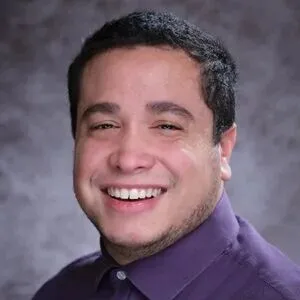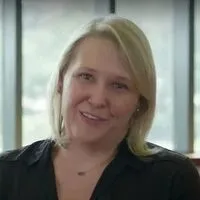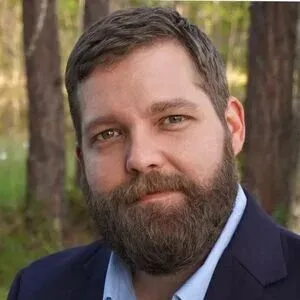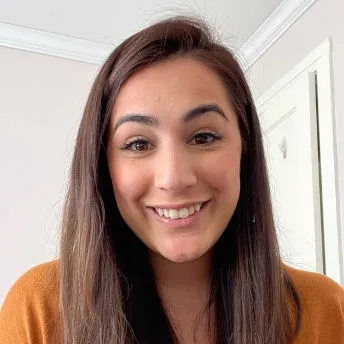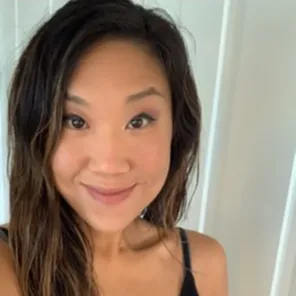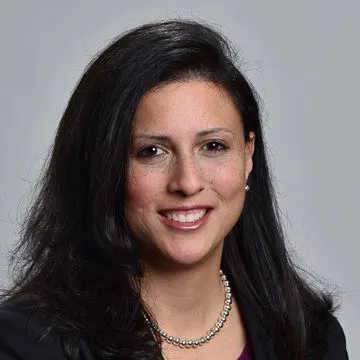Why Now is a Great Time to Pursue Social Work in South Carolina
The demand for social workers is on the rise, with significant increases expected in South Carolina. Earning an MSW could elevate your impact, employability, and earning potential. Research shows MSW salaries are typically more than $19,000 higher than BSW salaries—based on various factors such as industry, title, and location1.
National social work employment is anticipated to increase by 6% by 2034—resulting in approximately 44,700 new jobs2. There is higher than average projected employment growth in social worker jobs in South Carolina from 2022 to 20323:
|
Job Title |
South Carolina Job Growth |
National Job Growth |
|
Child, Family & School Social Workers |
12% |
3% |
|
Healthcare Social Workers |
22% |
8% |
|
Marriage & Family Therapists |
21% |
13% |
|
Mental Health & Substance Use Counselors |
16% |
10% |
|
Social Workers, All Other |
10% |
4% |
More Facts About Social Work in South Carolina
- South Carolina employs more than 8,000 social workers.4
- South Carolina is home to approximately 100 federally designated Rural Health Clinics (RHCs),5 and qualified social workers in rural South Carolina are eligible for the Loan Repayment Program.6
- The South Carolina Chapter of the National Association of Social Workers denotes the following causes for state-level causes7:
- South Carolina Progressive Network
- Medicaid Expansion
- Affordable Care Act
Social workers in South Carolina are organizing to promote legislation related to healthcare, hate crimes, homelessness, and exploitation7.
How to Become a Licensed Clinical Social Worker in South Carolina
To hold the designation of Licensed Independent Social Worker (LISW) with a Clinical Practice focus in South Carolina, you will need to take the following steps:
- Earn at least a master’s degree in social work, plus required academic contact hours, from a program accredited by the Council on Social Work Education (CSWE).
- Complete at least 3,000 hours of supervised clinical social work practice following prescribed standards.
- Apply for LISW-CP licensure through the South Carolina Board of Social Work Examiners.
- Achieve a passing score on the Association of Social Work Boards (ASWB) clinical exam.
Requirements for licensure may change, so be sure to frequently check South Carolina state requirements to ensure you are on the correct path to licensure.
Build Your Legacy on Ours at Florida State University
Go beyond South Carolina. Elevate your clinical career and reputation with a leader in social work. For more than 20 years, Florida State University’s Online Master of Social Work (MSW) in South Carolina has been consistently recognized as one of the best in the nation. Our world-class curriculum and growing fieldwork connections empower you, and your community, for a lifetime of impact.
South Carolina Online MSW Program Details
For more than a century Florida State has offered classes on social welfare—establishing us as a center of social work practice, policy, and research. Our Online MSW program in South Carolina gives you access to our distinguished legacy, curriculum, and educators from anywhere with an internet connection.
-
There are two tracks, based on your undergraduate degree:
- Advanced Standing MSW: if you already have a Bachelor of Social Work
- Traditional MSW: if you have a bachelor's degree in another concentration
Both tracks are:
- Online & part-time *
- $625 per credit hour
- Accredited by the Council of Social Work Education (CSWE)
- Clinically focused, with fieldwork placements to apply theory to practice
* Limited seats are available in our Full-Time Advanced Standing MSW. Ask your advisor for details.
Click the corresponding tab for program-specific information.
-
-
-
-
-
There are two tracks, based on your undergraduate degree:
- Advanced Standing MSW: if you already have a Bachelor of Social Work
- Traditional MSW: if you have a bachelor's degree in another concentration
Both tracks are:
- Online & part-time *
- $625 per credit hour
- Accredited by the Council of Social Work Education (CSWE)
- Clinically focused, with fieldwork placements to apply theory to practice
* Limited seats are available in our Full-Time Advanced Standing MSW. Ask your advisor for details.
Click the corresponding tab for program-specific information.

Online Traditional MSW
No matter what your academic background is, build on your bachelor’s degree to gain the practical competence and confidence you need to become a clinical social worker.
- Build on your existing bachelor's
- Graduate in 3 years
- Study part time
To apply, you must have a Bachelor’s Degree in any field from an accredited institution and submit:
- Transcripts with a minimum GPA of 3.0 on upper-division courses
- Resume and Statement of Purpose
- Letters of recommendation
- $30 application fee
Learn from faculty and peers during two mandatory on-campus weekend workshops in Tallahassee, Florida. Develop your clinical skills together before your first field placement.
Put online clinical theory into practice in various settings in your community, such as schools, agencies, clinics, and more. You’ll collaborate with the FSU Office of Field Education to find two local field placements.

Online Advanced Standing MSW
Take the first step to clinical licensure. Build on your Bachelor of Social Work (BSW) to increase your autonomy and earning potential.
- Build on your BSW
- Graduate in 2 years or less
- Study part time or full time
To apply, you must have a Bachelor of Social Work (BSW) from a CSWE-accredited institution and submit:
- Transcripts with a minimum GPA of 3.0 on upper-division courses
- Resume and Statement of Purpose
- Letters of recommendation
- $30 application fee
Except for your field placement, the Advanced Standing MSW can be completed online. This does include one mandatory zoom class.
Evolve in your current role* or collaborate with the FSU Office of Field Education to find one placement in your community.
*Pending FSU review and approval
Curriculum Snapshot
Our clinically-focused curriculum qualifies you to pursue a license in clinical social work. This is a sample list of courses you will take while enrolled in the online Traditional MSW program. For a complete course list, please download your guide.
This course focuses on reciprocal relationships between human behavior and social environments. Content includes empirically based theories and knowledge that focus on the interactions between and among systems of all sizes, including individuals, groups, societies, and economic systems. Theories and knowledge of biological, psychological, sociological, cultural, and spiritual development across the lifespan are critiqued, especially as they relate to at-risk populations. In addition, theories and knowledge about the range of social systems (individual, family, group, organizational, and community) in which people live are examined, including the ways social systems promote or deter people in maintaining or achieving health and well-being.
This course provides an initial opportunity to investigate the relationships among individual and collective social welfare and public policy in American society from a social work perspective, with emphasis placed on understanding these relationships in terms of social and economic justice. Particular attention is paid to acquisition of skills necessary to engage in policy advocacy and formulation consistent with social work values and ethics, fostering an appreciation for the roles played by social workers in the development of the American welfare state, and reviewing the history of the social work profession.
This course provides students with knowledge and skills related to the theory, research, and implications of child and adolescent maltreatment for child development and psychopathology. Course content is presented within the context of child welfare practice and social work with children and adolescents in public agencies and programs. Particular attention will be given to common psychological disorders that result from maltreatment and accompanying treatment issues. Issues related to individuals, families, groups, and communities are covered and attention is given to working with ethnic minorities, women, gays and lesbians, and persons with disabilities.
This advanced practice course emphasizes development of clinical skills. Students will refine their clinical skills, building on the research-based, nonspecific (common factors) components of therapeutic work (i.e., therapeutic alliance, empathy, goal consensus/collaboration, positive regard/affirmation, and genuineness) and specific factors (validated treatments). The course provides in-depth coverage of three empirically based models; Solution Focused, Motivational Interviewing, and Interpersonal Therapy. Learning applications of techniques informed by these models provides opportunities to enhance professional use of self. The course examines similarities and differences among models and allows students to discern appropriate use of techniques, client populations, settings, and problem interactions. Students will develop competency in the ethical and strength-based use of these models.
As part of this course, all students will be required to participate in a mandatory Zoom session.
Next Application Deadline
March 1, 2026
Next Start Date
May 11, 2026
Frequently Asked Questions
For more than twenty years, we have offered our MSW online and are constantly evolving the curriculum and experience. As an online student, you get convenient access to distinguished faculty and skilled practitioners who are nationally recognized.
We are renowned for our research contributions and quality of education. U.S. News & World Report ranks us in the top 12% of social work graduate schools.
Yes, all coursework is completed online except for weekend workshops on campus and field placements that develop practical competence and confidence through hands-on experience.
- Traditional MSW students must complete (2) mandatory weekend workshops on campus in Tallahassee, Florida and (2) field placements.
- Advanced Standing MSW students must only complete (1) field placement. No campus visits are required.
The difference between our programs is dependent on your undergraduate experience.
The Advanced Standing MSW is available to students who have completed a bachelor’s degree in social work from a Council on Social Work Education (CSWE) accredited institution.
The Traditional MSW is for students who hold a bachelor’s degree in any concentration other than social work.
According to Fortune Education, MSW degrees can cost less than $40,000 or as much as $89,000. Florida State University’s Traditional Online MSW costs $625 per credit hour for South Carolina residents and consists of 61 credit hours ($38,125 total). The Advanced Standing Online MSW consists of 39 credit hours ($24,375 total).
An online Master of Social Work increases your clinical autonomy, career opportunities and earning potential. Possible roles could include:
- Case management supervisor
- Clinical social worker
- Crisis manager
- Licensed mental health therapist
- Private practitioner
We’ve created an interactive tool to help you determine if our program meets licensing requirements.
Follow these steps:
- Click here to get started
- Program: Clinical/Medical Social Work
- Major: Social Work – MSW (Clin/Adv) or (Clin Trd) based on your bachelor’s degree
- Then, choose your state from the available options
Remember that licensure requirements can change, so it’s essential to check your state’s licensing agency periodically.
No, the College of Social Work does not require a GRE at this time.
Sources
- 2024 Social Work Workforce Survey
- U.S. Bureau of Labor Statistics Occupational Outlook - Social Workers - May 2023
- U.S. Department of Labor - Projections Central
- U.S. Bureau of Labor Statistics Occupational Employment and Wage Statistics - South Carolina
- South Carolina Office of Rural Health - Rural Health Clinic Services
- Health Resources & Services Administration - NHSC Rural Community Loan Repayment Program
- NASW - South Carolina Chapter
We're Here to Help
Ready to change lives? Click the button below to get started and get your guide. An advisor will connect shortly to answer your questions and share more about how Florida State can help you make a difference.
- Admission Requirements
- Course Descriptions
- Field Placement Details
- Application Steps
- Tuition & Financial Aid
- Upcoming Deadlines
